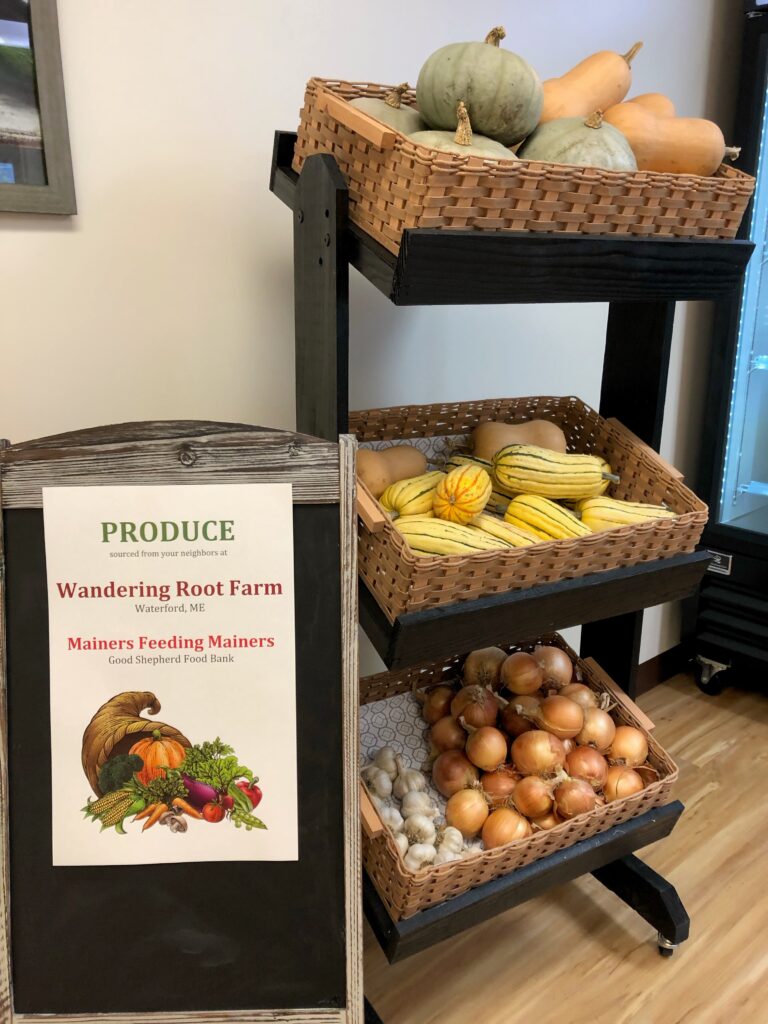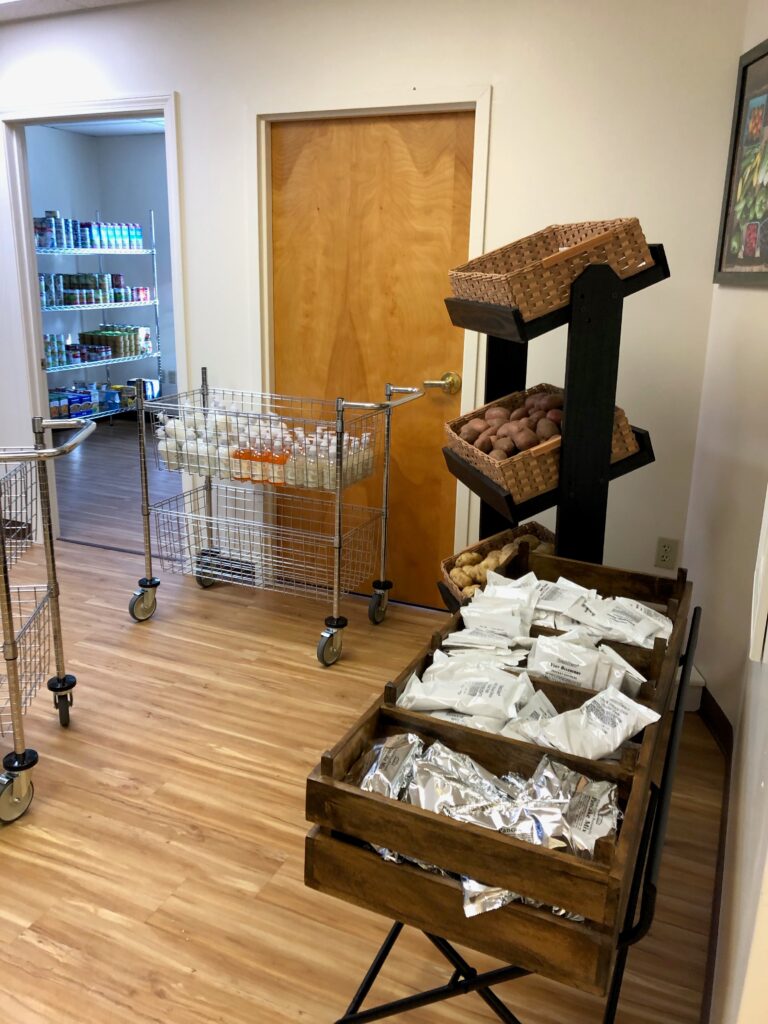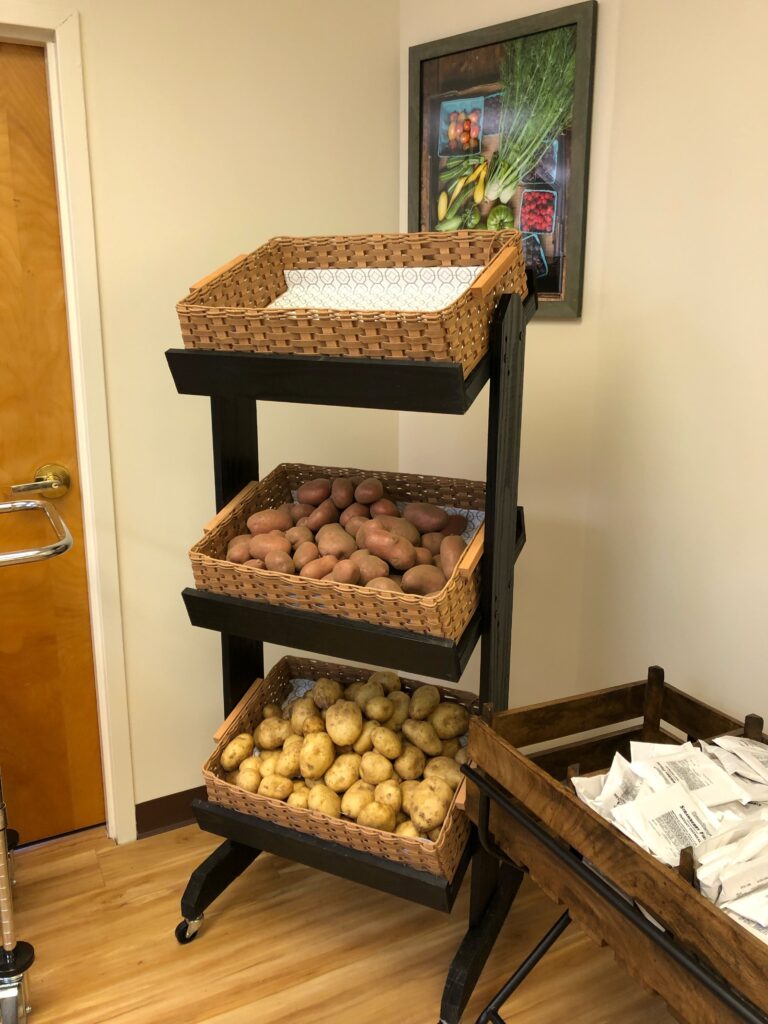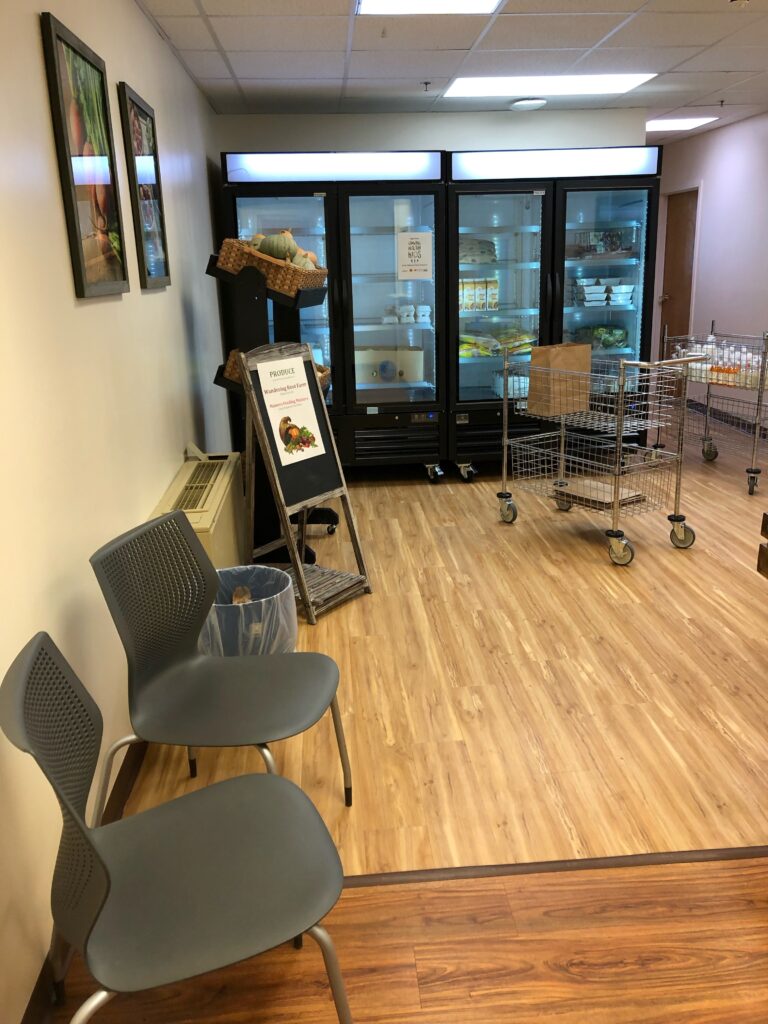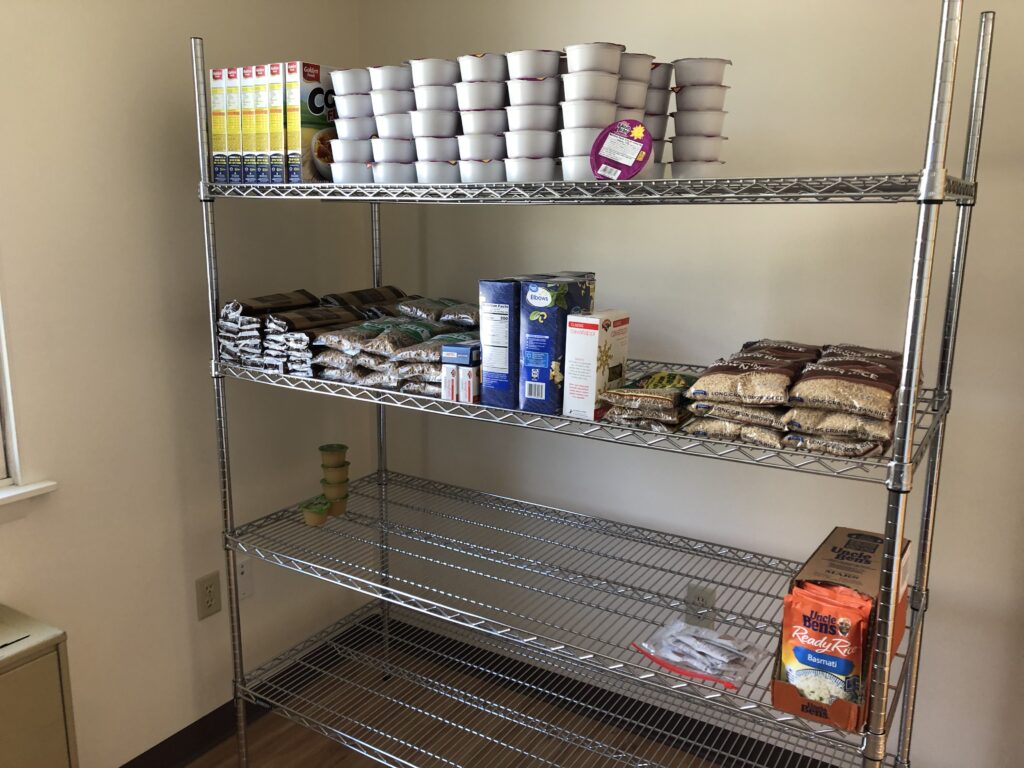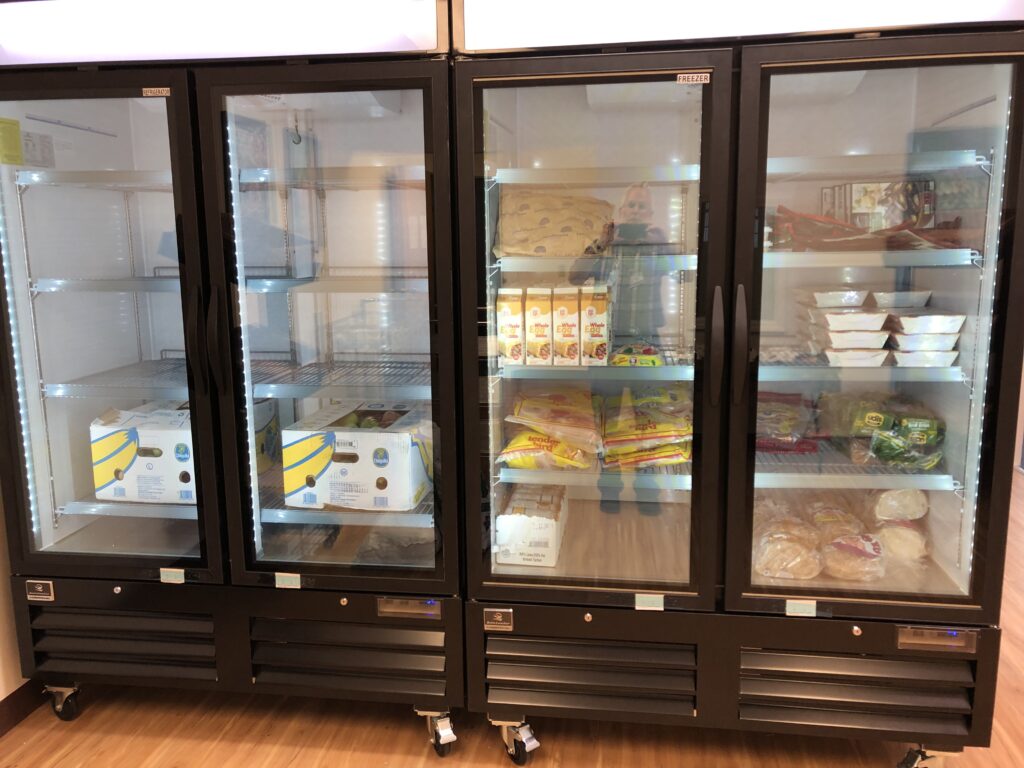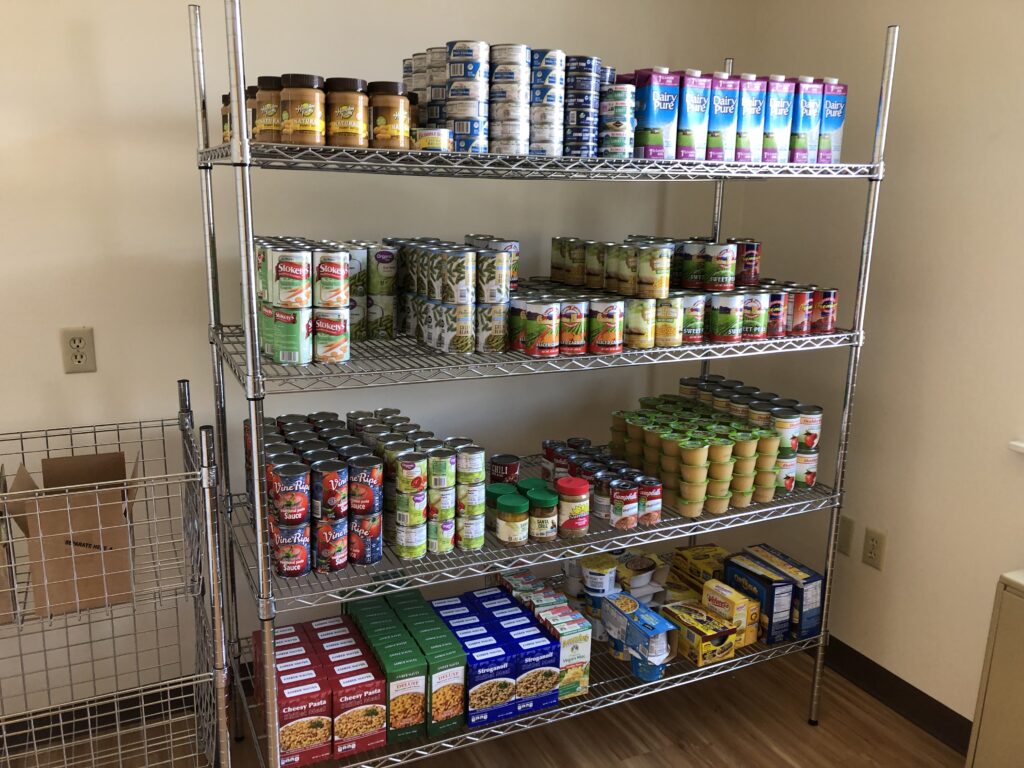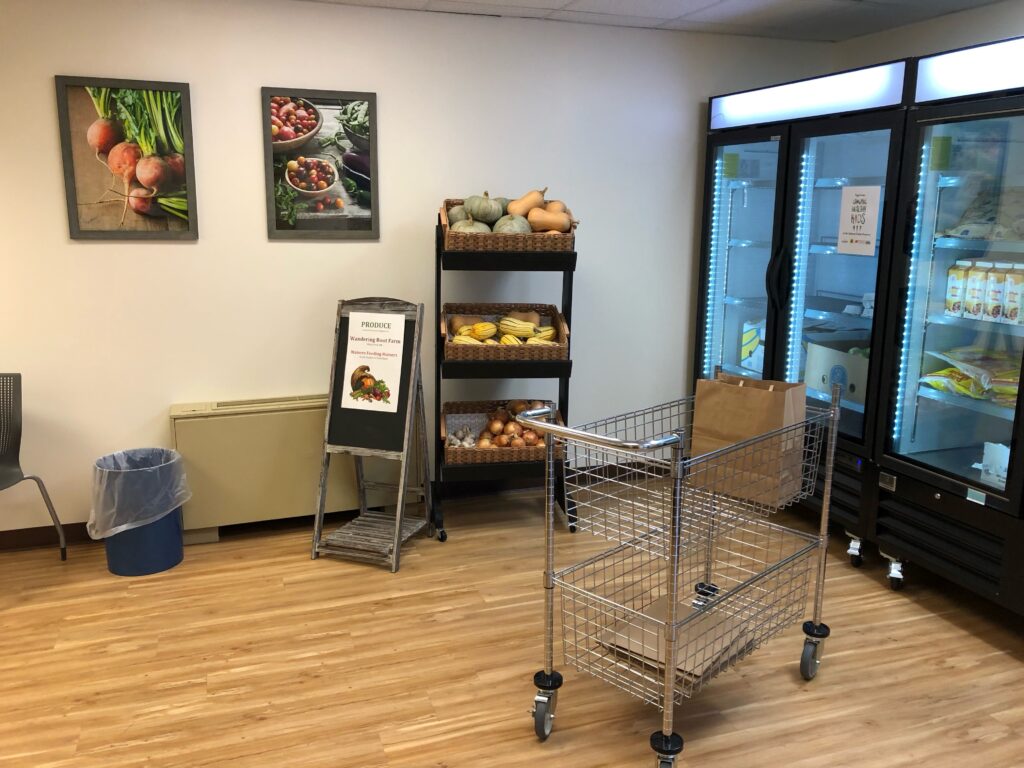“I’m raising my 9-year-old granddaughter, and it’s tough keeping a growing girl clothed, fed, and cared for. Add in unexpected medical expenses and it becomes just about impossible. A neighbor told me about our local food cupboard and helps drive me there. It’s an excellent source of fruits, vegetables, whole grains, and good meat. Because I have cancer, eating healthy is especially important. But that’s easy to do using the ingredients available from the Cupboard. My heart is no longer troubled about feeding my husband and granddaughter. When money’s tight, I know I can come here for nutritious meals.” ~Monique, a senior with lymphoma.
Through Good Shepherd Food Bank’s Community Health and Hunger Program, we partner with health care organizations across Maine to provide training for health care professionals to spot patients experiencing food insecurity. By asking Hunger Vital Signs™ Food Insecurity Screening questions, health care providers are able to identify food insecure patients or those at risk of becoming food insecure, and help connect them to healthy food in their community, either at their doctors’ office or at a local food pantry partner. Several healthcare partners also stock pre-packed emergency food bags, which provide two to three days of nutritious shelf-stable food.
In 2021, Good Shepherd Food Bank and MaineHealth partnered to open two hospital-based food pantries to increase patient access to healthy and diet-specific foods their patients need to thrive. The hospital-based pantry model aims to create safe, welcoming spaces for clients to access nutritious food and connect clients to services that address many of the root causes of hunger.
A hospital-based food pantry program differs from a traditional community-based food pantry in a few key ways:
- Its location is usually within a hospital, another clinical setting, or in a nearby building
- They have a special focus on addressing the nutritional concerns of clients
- They’re often better positioned to provide wrap-around services such as access to healthcare, safe and reliable transportation, and housing assistance through partnerships with community-based organizations and other hospital programming
